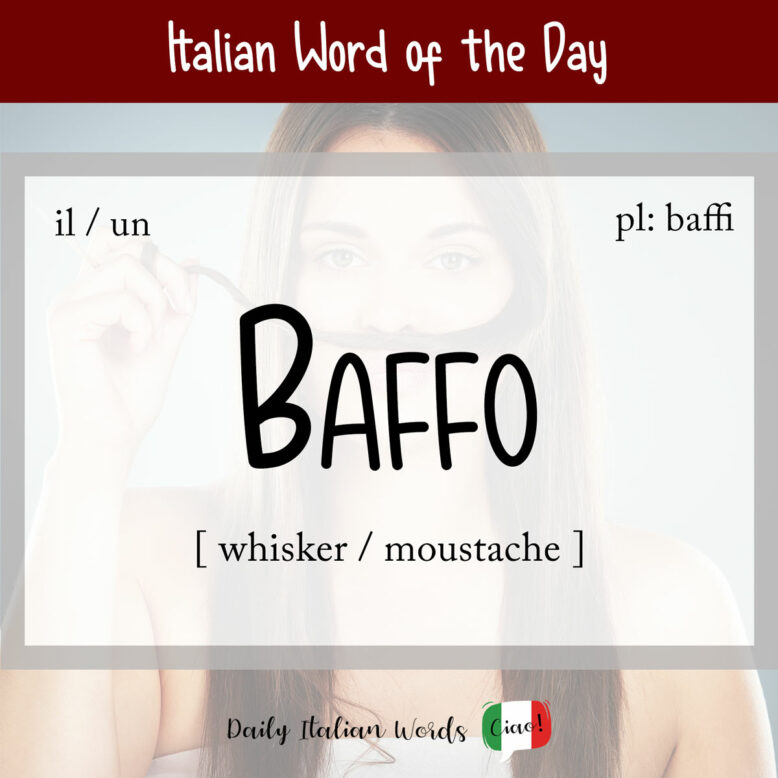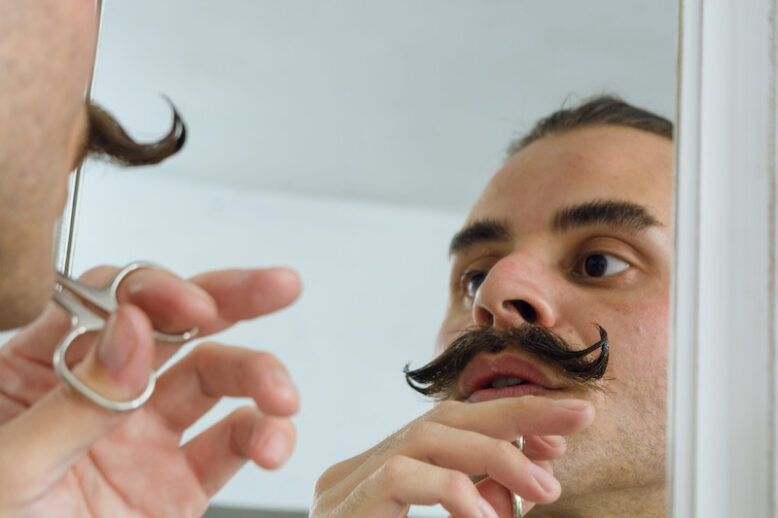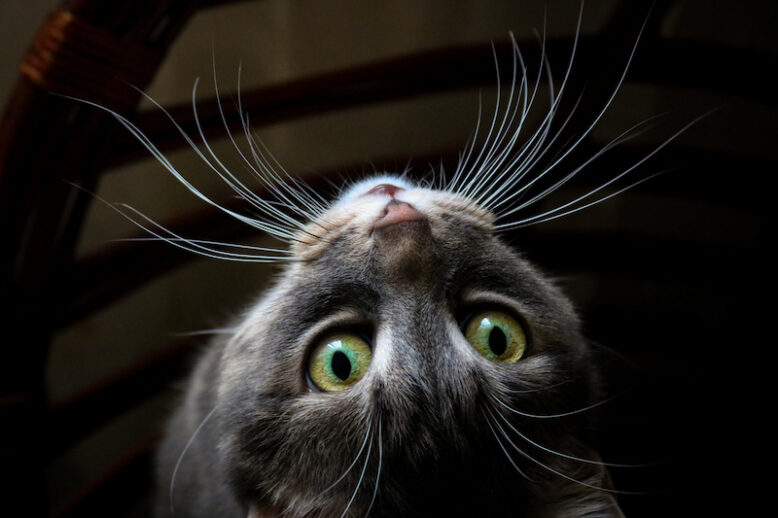When I first met my husband, he had a distinctive moustache and goatee, but since we had our son, he’s chosen to go clean-shaven. Honestly, I can’t say which look I prefer!
In Italian, the word for moustache (or mustache) is the plural form of baffo, which is baffi. Baffo on its own refers to the individual whiskers of an animal. It is rare to see the singular form used to describe a human moustache.
baffo
whisker / moustache

Baffo is a masculine noun that takes the following definite and indefinite articles:
- il baffo = the whisker
- i baffi = the whiskers / the moustache
- un baffo = a whisker
- dei baffi = some whiskers / moustaches
Baffi come in all shapes and sizes, but some of the most iconic styles include i baffi all’americana, a clean and precise moustache that extends from the corners of the lips to just below the nose; i baffi a spazzolino, the small, toothbrush-like moustache made famous by Charlie Chaplin; and i baffi a manubrio, a large and bushy moustache with curled-up edges resembling a handlebar.
Below are a few of the most common verbs you will see used with baffi:
- portare i baffi = to have a moustache
- farsi crescere i baffi = to grow a moustache
- radersi i baffi = to shave off one’s moustache
- tagliarsi i baffi = to trim one’s moustache
- pettinare i baffi = to brush one’s moustache
- sfoltire i baffi = to thin out one’s moustache
Voglio farmi crescere i baffi.
I want to grow a moustache.

By extension, baffo can also denote a man who has a moustache. In this case, it is always used in its singular form. You may also hear the augmentative baffone (for a man with a bushy mustache) or the feminine baffona (for a woman with facial hair on her lips).
Did you know that…
Il Baffone (The Moustache) is the nickname given to Joseph Stalin in Italy, derived from the augmentative form of baffo due to his large and distinctive moustache.
A popular expression from the Campania region, Adda venì Baffone, which translates to “The moustache must arrive,” originated during World War II. Many Neapolitans at the time believed that the Soviet Union was a free and advanced country, and they dreamed that one day, a Baffone of their own would come to liberate them. Even after the harsh reality of Soviet life became known, the expression has continued to be used as a way of wishing for a better situation. In standard Italian, the equivalent would be Ha da venire il baffone. (Source: Voce di Napoli)
As we mentioned above, baffo can also refer to the whiskers of an animal such as cat or a mouse.
I baffi dei gatti possono ricrescere.
Cats’ whiskers can grow back.

In addition to describing facial hair, baffo is also the word for a smear or smudge. For example, un baffo di rossetto is how you would say a smudge of lipstick.
It is thought that the word derives from the Greek baphḗ, meaning dye, which would suggest that the original meaning was related to smear or smudge.
Idiomatic expressions featuring ‘baffo’
Da leccarsi i baffi
Literal translation: to lick one’s moustache
English meaning: to lick one’s lips; said of something that is delicious or appetising (e.g. un pranzo da leccarsi i baffi = a delicious lunch)
Coi baffi
Literal translation: with a moustache
English meaning: to be excellent, brilliant, splendid or skilful (e.g. una cena coi baffi = a splendid dinner)
Farsene un baffo di qualcosa
Literal translation: to make a moustache out of something
English meaning: to not give a damn about something
Ridere sotto i baffi
Literal translation: to laugh under one’s moustache
English meaning: to snicker at
Heather Broster is a graduate with honours in linguistics from the University of Western Ontario. She is an aspiring polyglot, proficient in English and Italian, as well as Japanese, Welsh, and French to varying degrees of fluency. Originally from Toronto, Heather has resided in various countries, notably Italy for a period of six years. Her primary focus lies in the fields of language acquisition, education, and bilingual instruction.


